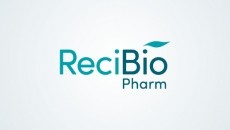Drugmakers will make ‘aggressive changes’ to R&D this year, say researchers
Kenneth Kaitlin, director of Tufts CSDD, predicts the changes will be made due to the growing catalogue of prescription drugs which face the loss of patent protection, and a shortage of likely blockbusters in drugmaker’s pipelines that poses a threat to revenues.
“The research-based drug industry, in the United States and globally, is not sitting still, but the question remains whether developers can bring enough new drugs to market at the pace needed to remain financially viable,” said Kaitlin.
According to Tufts CSDD, a drugmaker can now expect to spend around $1.3bn on developing a new drug. Unfortunately, researchers said the task of creating a ‘blockbuster drug’ - which yields annual revenue of at least $1bn - is set to become “increasingly daunting” over the next few years because of competition from genetic rivals as well as growing R&D costs.
To help improve R&D productivity, Tufts CSDD suggest drug developers should rely more on translational science to help identify the right disease targets for new molecules.
Partnerships will share risks
Furthermore, the Massachusetts- US based centre reports that forming partnerships with external service providers can enable drugmakers to share risks, reduce cycle times, lower costs, and improve resource management.
Tufts CSDD expects a number of changes in R&D to come into effect over the next year, one of which being a decrease in the number of countries hosting development activity which will come as part of an attempt to reduce global logistical and regulatory complexity.
Development of mABs
More resources from the pharma and biotech industries will be ploughed into the potentially lucrative development of monoclonal antibodies (mABs), said Tufts CSDD, as annual global sales of these products is nearing $40bn.
Researchers also expect to see a greater number of risk-sharing deals being formed. It will be more common for “pharmaceutical companies and payers [to] agree to share the risk regarding a newly approved product’s cost effectiveness in clinical practice,” said Tufts CSDD.





